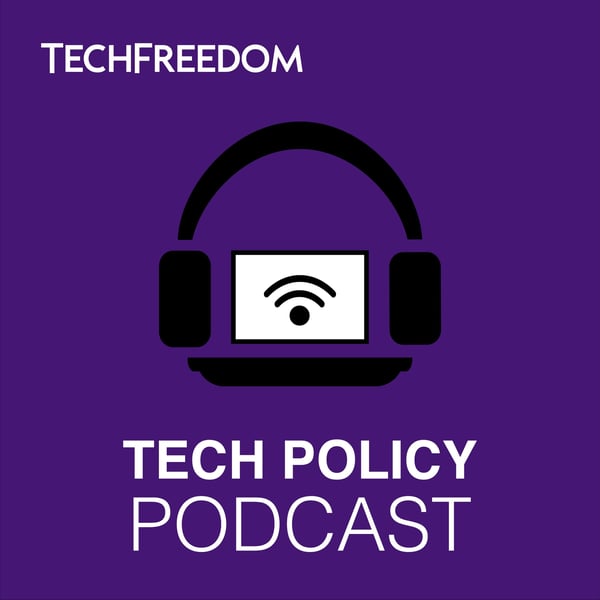#124: Suing a Website
Tech Policy Podcast
TechFreedom
4.8 • 45 Ratings
🗓️ 13 September 2016
⏱️ 24 minutes
🧾️ Download transcript
Summary
Transcript
Click on a timestamp to play from that location
| 0:00.0 | Welcome to the Tech Policy Podcast. I'm Evan Schwarger. On today's show, did you ever want to sue a website? Have you ever wondered if it's even possible to sue a website? The answer might surprise you. Joining me to discuss this is Kathy Gellis, |
| 0:21.4 | solo cyber lawyer focused on platforms and free speech, and she's based in Sausalito. |
| 0:26.0 | Kathy, thanks for joining us in D.C. So we've talked about this on the show before, |
| 0:31.7 | platform liability. It's the basic question, what can courts or what can we reasonably expect from platforms when we're talking about things like crime or just violations of housing laws like Airbnb? |
| 0:45.7 | And to bring listeners up to speed, we're talking about a section of law called Section 230. |
| 0:51.3 | So can you briefly explain what section 230 is for our listeners? |
| 0:55.0 | Section 230 is a piece of the Communications Decency Act that was not part of the unconstitutional |
| 1:02.0 | aspects of the Communications Decency Act of 1996. |
| 1:06.0 | Congress was really worried about bad things on the internet, particularly of the porn flavor, and tried to pass a law to |
| 1:12.5 | get rid of them. And this law was mostly done away within Reno versus ACLU. The Supreme Court |
| 1:18.8 | spoke and said, uh-uh, this isn't going to be, the First Amendment is not going to let you |
| 1:23.2 | statutorily do the type of censorship you want to do. But when the law was being passed, Congress |
| 1:28.7 | put in Section 230 as part of it. And Section 230 is, it's lasted and it's had a very powerful |
| 1:36.6 | effect because what it does is insulate the platforms that intermediateate everybody's speech |
| 1:42.6 | and make sure that it's not to say that nobody's going to be liable if something is wrong with the speech. A likely thing that is wrong is it might be defamatory. The speech may still be disfamatory, but that if you want to hold somebody legally responsible for what's wrong with it, you can only hold the person who created it, liable, not the platform that |
| 2:01.6 | intermediated it. And this protection is really important, really robust, really strong, and |
| 2:07.6 | really necessary for all the platforms that in the last 20 years we have come into existence |
| 2:13.6 | and all the interesting services and tools and usefulness that they end up providing. |
| 2:22.1 | It's remarkably forward-looking. I mean, if you think about where Congress was in 1996, |
| 2:27.9 | the Telecommunications Act of 1996, you know, my boss, Baron, has said, didn't really contemplate the Internet. |
| 2:32.9 | It acknowledged the Internet. It didn't really regulate it. But they still put this provision in. And it's amazing because that was eight years before Facebook, you know, eight years before |
| 2:37.5 | YouTube, 12 years before Twitter. |
... |
Transcript will be available on the free plan in -3121 days. Upgrade to see the full transcript now.
Disclaimer: The podcast and artwork embedded on this page are from TechFreedom, and are the property of its owner and not affiliated with or endorsed by Tapesearch.
Generated transcripts are the property of TechFreedom and are distributed freely under the Fair Use doctrine. Transcripts generated by Tapesearch are not guaranteed to be accurate.
Copyright © Tapesearch 2025.

